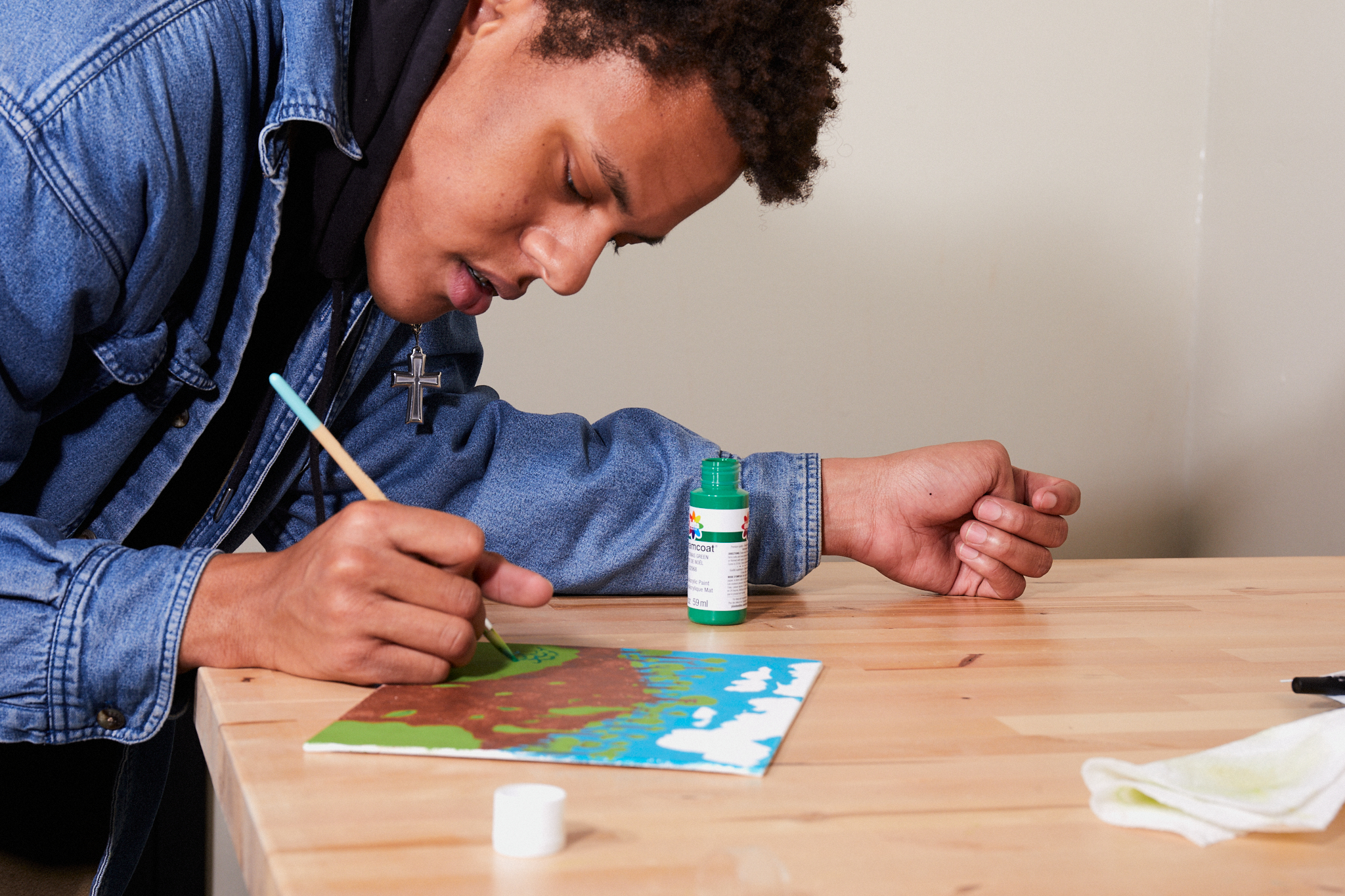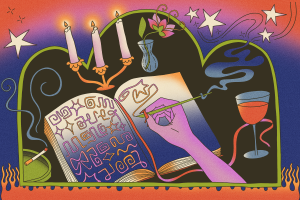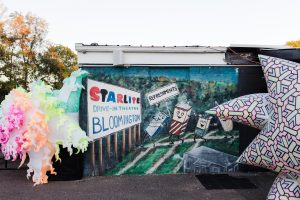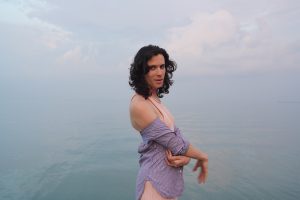Featured image: Marcus Pruitt leans over a a table while painting a picture with greens and blues. He is wearing a black sweatshirt under a jean jacket and a cross necklace. Photo by Sarah Joyce.
Land of the Free
by Marcus Pruitt
Sleepless nights, dreams about losing my life
To the same system that ruined the lives of so many Around me.
I keep asking myself when I shoot up, my heart giving a Resounding beat,
Will I be the next
To have shackles on my feet?
The answer is never clear,
So I thought I’d ask here,
Are you willing to take everything from me, you so called land of the free?
* * *
As a poet, I am often asked what inspires my work, where I started, and what the process is when I create. These questions gave me the opportunity to reflect on my own writing process and made me extremely curious about that of other writers. The Evolution of a Thought walks through the minds of poets, exploring the origin and path of their work in order to gain insight into the myriad ways in which they create.
For this iteration of The Evolution of a Thought, I spoke with Marcus Pruitt, a multi-talented writer originally from Maywood, IL who has lived throughout the state. Pruitt is currently in his third year of studying journalism at Illinois State University. In the last few years, he has been honing in on his writing skills through poetry, interviews, and journalism. His journalism focuses on music and stories that push culture forward, with plans to move towards community journalism in the coming years. Pruitt currently writes for AUDIBLWAV and Dreamer Data. The former is a media company primarily focused on culture news, while the latter is a production company/collective focused on shedding light on authentic musicians through music videos, magazines, and other creative mediums. Pruitt hopes to help improve the lives of those around him through various journalistic mediums, primarily written and documentary-style work. As the world changes and evolves, his work reflects our time.
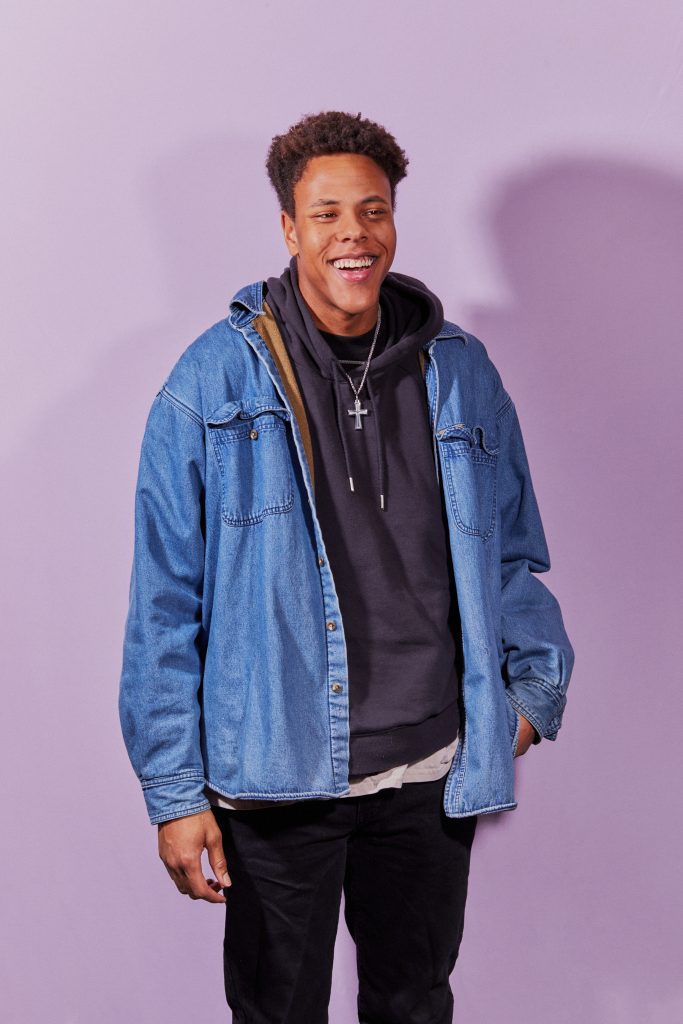
Kyra Horton: What got you into poetry?
Marcus Pruitt: I’ve always had a knack for writing. When I was younger I used to put my own little books together to help express my imagination, and as I got older the imagination that drove these books would transform into think pieces, reviews, and everything else under the sun. Most recently, it has transformed into poetry. I felt like I needed a new outlet for my emotions as opposed to longer pieces. This way I could utilize subtext and subtlety to express the same messages. I still consider my longer pieces such as journalism and interview, poetry (even though they don’t follow a particular formula), but short form writing has proven to have its own place in my heart.
KH: What keeps you writing poetry? What does it do for you?
MP: Aside from feeling like I need to commentate on the world and try to drive people to act for what’s right, I’d say my need to express my feelings and thoughts is what really keeps me writing. If I wasn’t able to get my words out onto a page, my head would probably explode! It keeps me sane, at the end of the day.
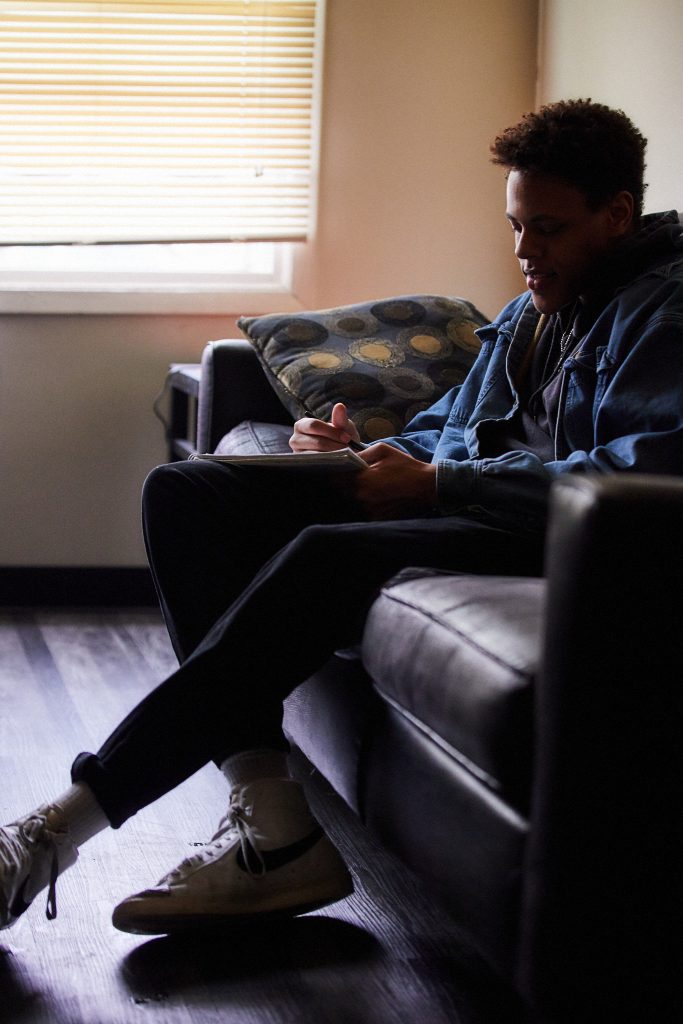
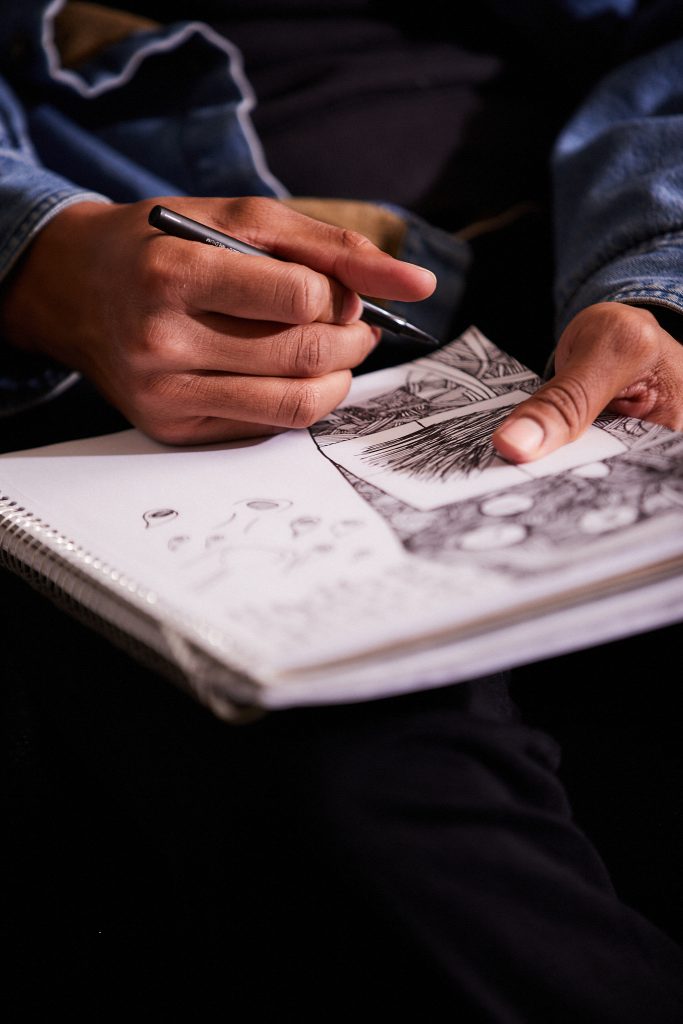
KH: How do you start a poem? When do you know you need to write?
MP: After maybe a minute of thinking about what topics to write about or cover and an additional five minutes bouncing word patterns off of each other, I end up writing the first string of lines. If it’s something short, I go with the flow and let my mind paint the page. If it’s a longer piece, I usually write an introduction before digging into various points through my note taking process.
KH: What inspires you most when you write? (Emotions, places, people. etc… )
MP: Honestly, my imagination mixing with my emotions usually results in me feeling the need to write. If I’m not present in my own head, I won’t be able to put anything together. No matter what I’m feeling or going through, if I am able to truly immerse myself in those feelings instead of running away from them, I am able to draw inspiration for a piece.
KH: What emotion shows up most in your poetry? How does your poem go from that emotion, to a well thought out concept?
MP: As mentioned above, my writing is an expression of my emotions, so a lot of them will show up. Love, nihilism, anger, whatever emotion you think of, you’ll likely be able to find it somewhere within my writing. If I had to pick one that shows up the most though, I’d probably say hope out of despair, if that makes any sense? A lot of my writing centers around the struggles I have operating as a Black man in America, so there’s elements of anxiety and fear that serve as contrasts to my hope for a better world.
KH: Much of your writing speaks of hope and freedom. How do you balance the realities of struggle with hope in your writing?
MP: I can’t lie, it’s really hard. My upbringing wasn’t filled with money and riches, and I’m still dealing with the repercussions of that today. A lot of days I’ll feel like struggle is the baseline, but knowing that there’s figures in history who have pushed that envelope and worked to help those struggling gives me hope that I, and everyone else in my generation, can be the next ones to push that envelope.
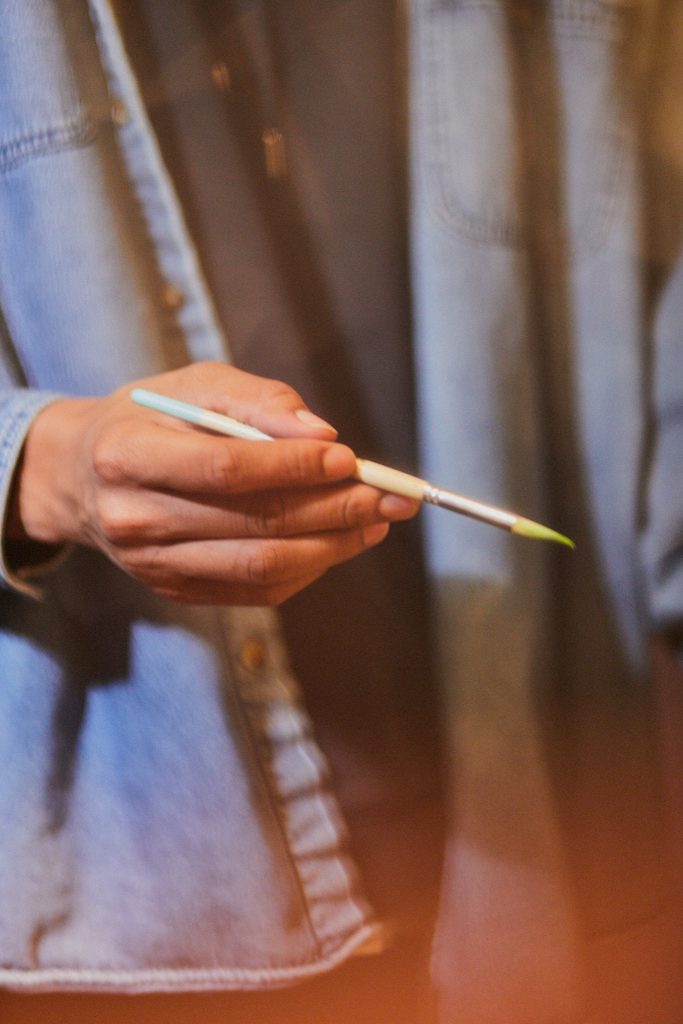
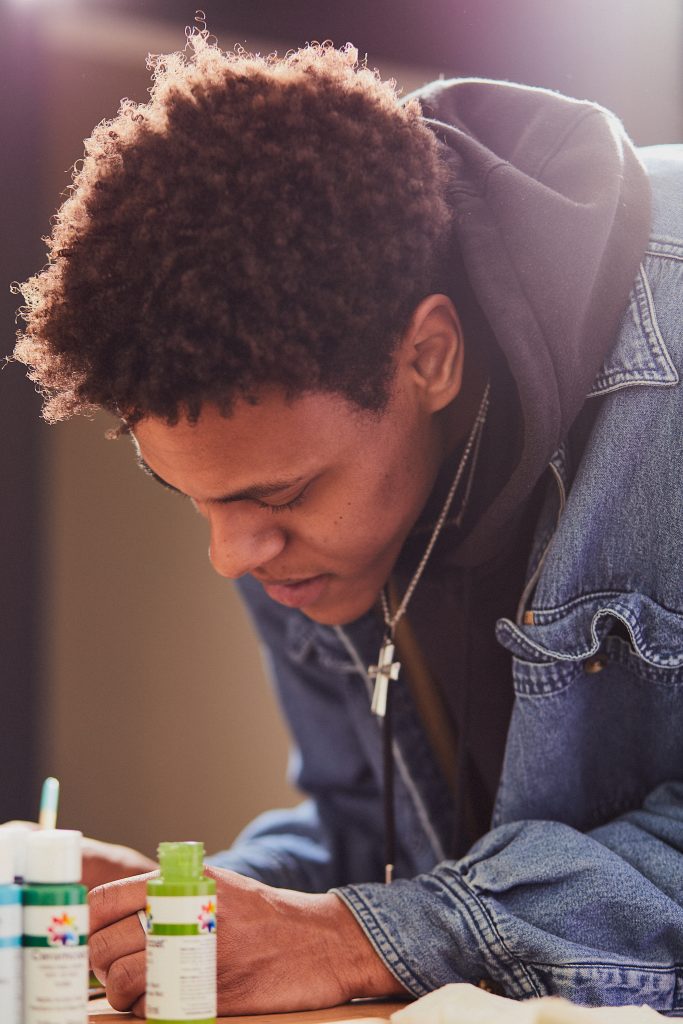
KH: Do you typically finish a poem in one sitting? If not, is it hard to go back to it?
MP: Yes, most of the time I’ll write something in the moment. If it’s something that’s longer, I usually have a day of notetaking before another day of writing and revising. It’s definitely hard to go back to the longer pieces, though. My mind is always racing, so if I halfway write a piece, it’s pretty hard to go back to it without wanting to go a different direction from where I started.
KH: What’s the most challenging part about writing?
MP: Figuring out when to stop editing a piece. Seriously, if you don’t stop yourself you’ll just revise, reread, and rewrite over and over again.
KH: Describe your writing process. Do you feel that your process changes the longer you’ve been writing?
MP: My process has definitely changed the longer I’ve written. If I’m putting a short poem together, then I usually just sit on my ideas and write off the dome, but if it’s a longer, more journalistic piece, I usually come at it with a plan. I start by brainstorming overall topics and subtopics–usually three or four different ideas. After that, I either pick a specific topic or combine them, do my research and pick out sources, then get to writing. Once the piece is put together, I reread, revise, and rewrite until I feel like it’d be good to go out.
KH: If you could give advice to someone wanting to start writing poetry, what would it be?
MP: Don’t listen to anybody who talks down on your writing. Take criticism well and don’t be afraid to critique yourself. At the end of the day though, your writing is YOURS, not anyone else’s. I consider writing to be an art form, and poetry is one of the most diverse mediums. Everyone has their own art style, so don’t let someone who doesn’t understand yours tell you if it’s good or not.
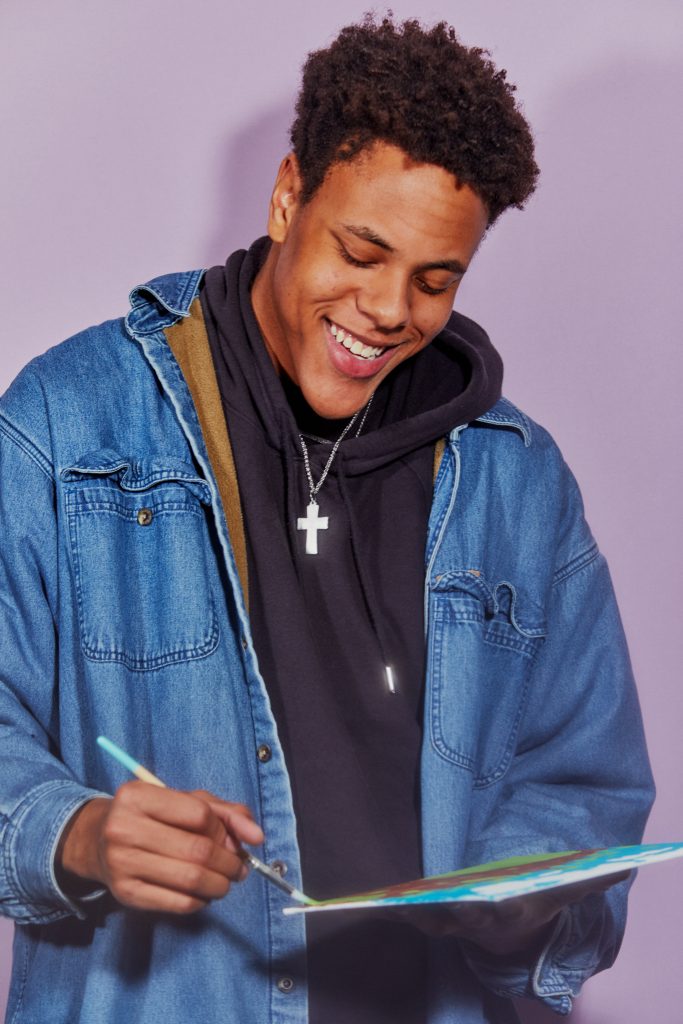
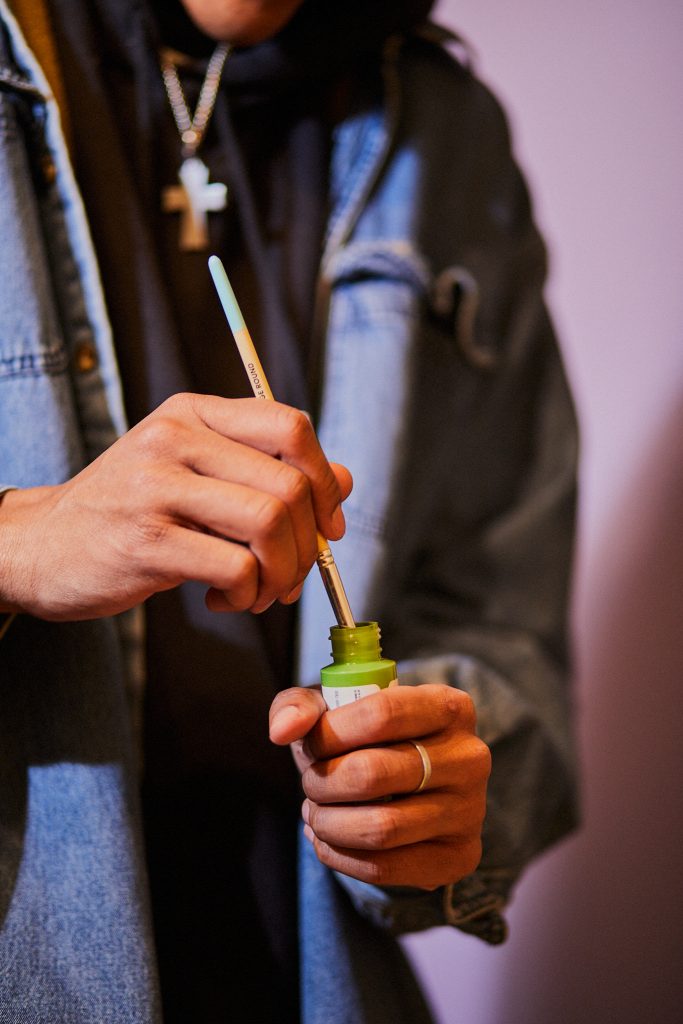
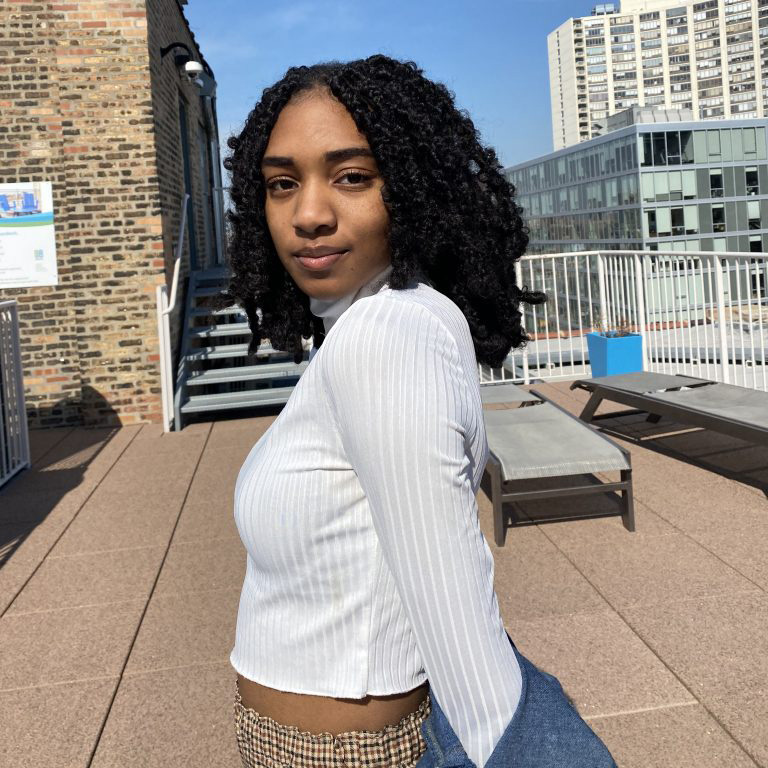
About the author: Kyra Horton is a 20 year old creator raised in Chicago. Whether expressing herself through writing, performing, or painting, she strives to turn pain into beauty. As a Black woman, she aims to capture life’s complexities through her art while still remaining genuine to who she is. She is fearless on her journey expressing the emotion painted in her heart. The world is her canvas, while also being her muse.
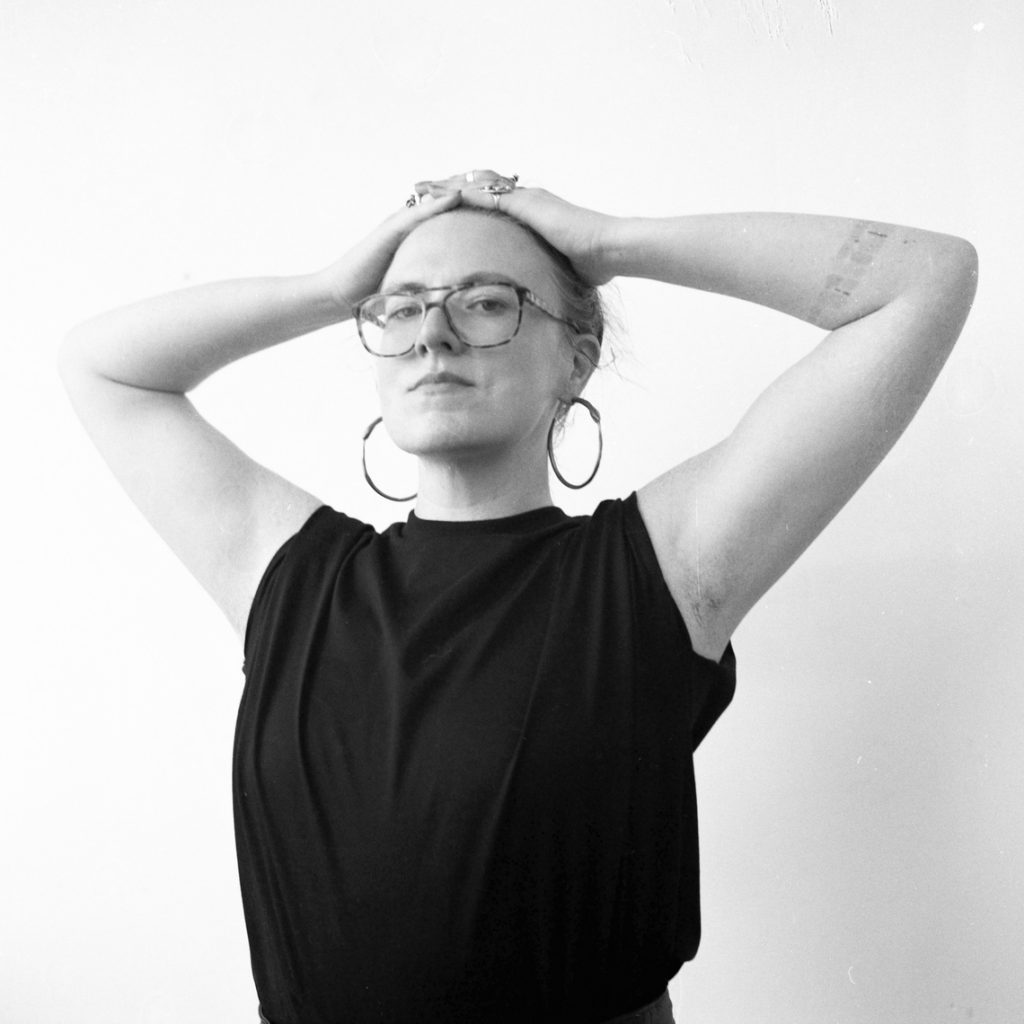
About the photographer: Sarah Joyce is a photographer based in Chicago. In addition to portraiture, she’s been documenting the cultures, subcultures, and countercultures of Chicago for the last 10 years as a co-founder of GlitterGuts.
